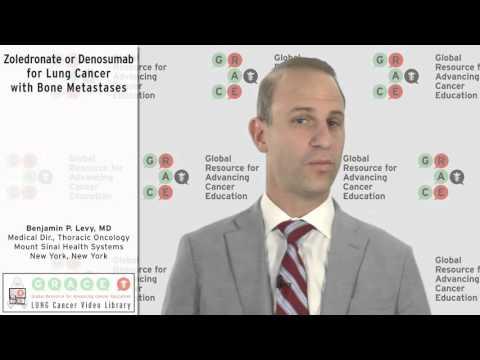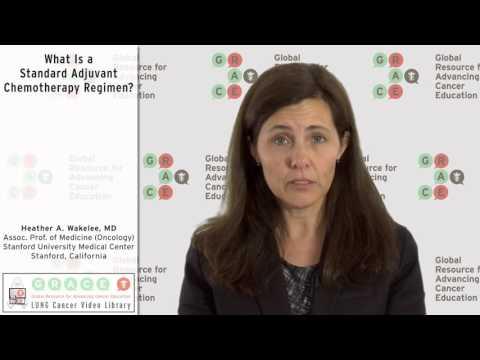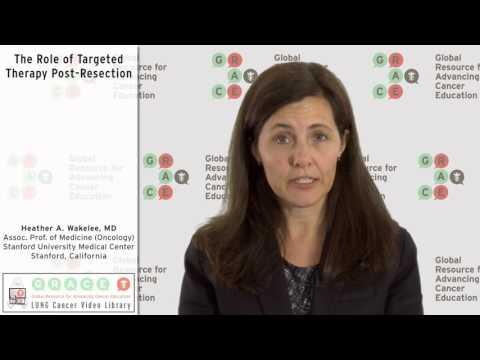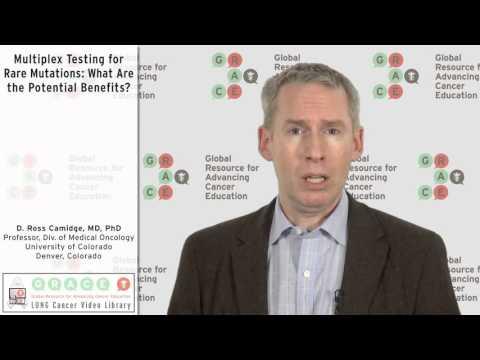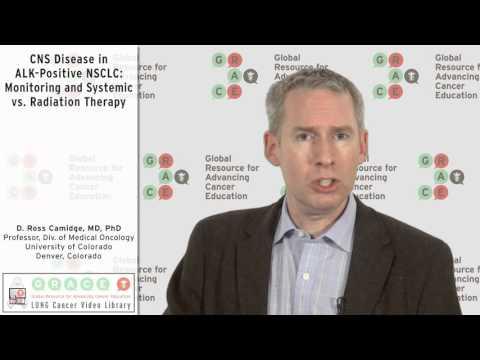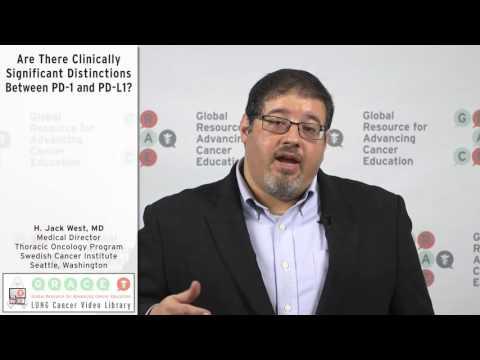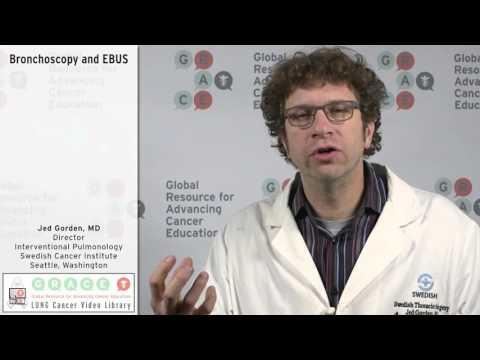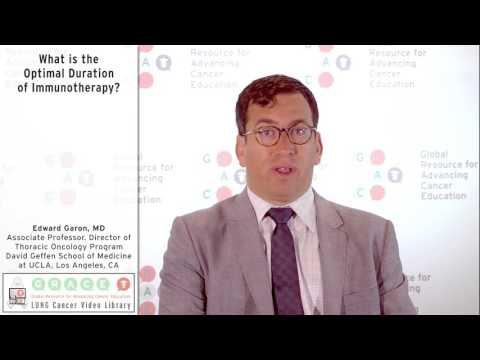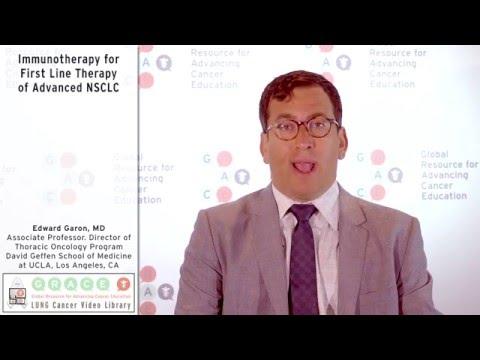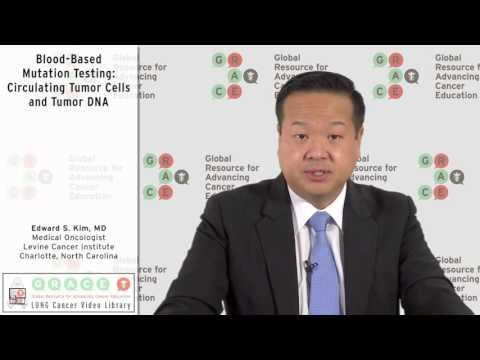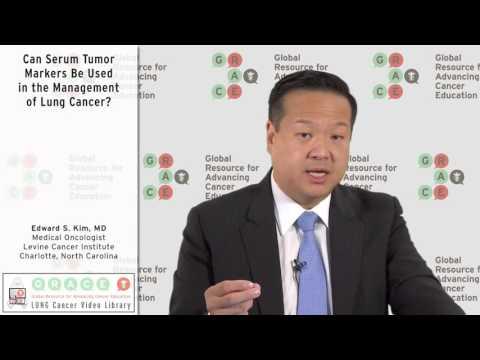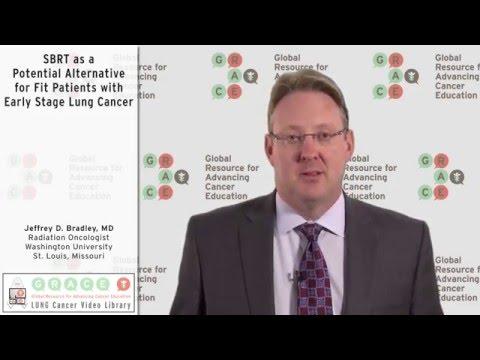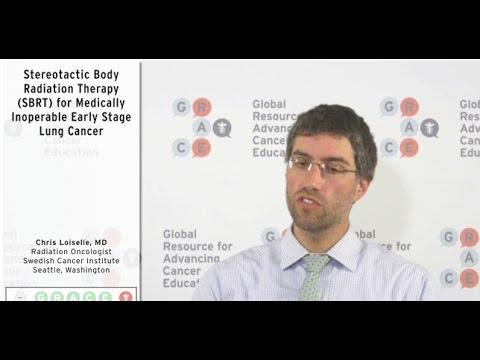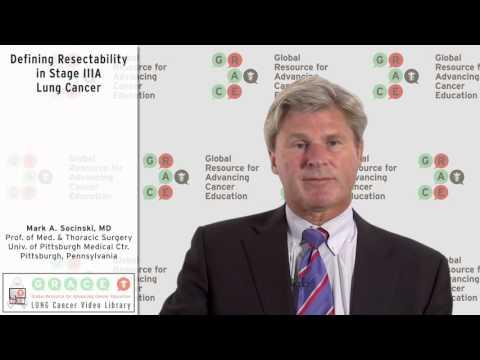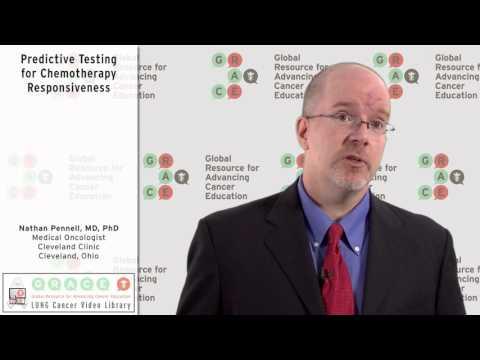Transcript One of the important points about patients with advanced lung cancer is that 30-40% of patients will develop bone metastases. I think it’s important to recognize this is not bone cancer, this is lung cancer that’s moved to the bone, and in 30-40% of patients at some point who have
Video Library
Search the Video Library
Video Language
Filter by Cancer Type:
Displaying Results 16 - 30 of 107
Dr. Heather Wakelee, Stanford University Medical Center, lists standard adjuvant chemotherapy regimens, comparing their administration and uses.
Dr. Heather Wakelee, Stanford University Medical Center, evaluates the lack of evidence for the use of targeted therapies after surgery, and describes ongoing trials attempting to resolve that issue.
Transcript More and more, when people are doing molecular testing on their tumor, they’re not just getting one test and if it’s negative doing another test — that’s called sequential testing, they’re doing lots of tests at the same time — that’s called multiplex testing. There are certain good
Dr. Ross Camidge, University of Colorado, discusses management of CNS progression for ALK-positive NSCLC including monitoring frequency and preferences between systemic and radiation therapy.
Dr. Jack West, Swedish Cancer Institute, compares the mechanism of action, efficacy and toxicity of PD-1 and PD-L1 inhibitors.
Dr. Jed Gorden, Swedish Cancer Institute, describes the differences between bronchoscopy and endobronchial ultrasound, highlighting the advantages of EBUS in diagnosis and staging.
UCLA Med Center's Dr. Eddie Garon discusses the open question of the optimal duration of ongoing treatment with immunotherapy for lung cancer.
Dr. Eddie Garon considers the data on immunotherapies for first line treatment of advanced NSCLC and whether we are likely to use these agents instead of or in combination with standard chemotherapy soon.
Dr. Ed Kim from the Levine Cancer Institute reviews the potential advantages and current limitations of blood-based testing for molecular markers using circulating tumor cells and circulating tumor DNA in identifying clinically important mutations.
Dr. Edward S. Kim from the Levine Cancer Institute in Charlotte, NC describes the use of serum tumor markers in various types of cancer, and the lack of a useful serum tumor marker in lung cancer.
Dr. Jeffrey Bradley, Radiation Oncologist at Washington University in St. Louis, provides evidence for the use of stereotactic body radiation therapy as an alternative to surgery for operable early stage lung cancer.
Dr. Jeffrey Bradley, Radiation Oncologist at Washington University in St. Louis, describes the history and current use of stereotactic radiation therapy for inoperable lung lesions.Dr. Jeffrey Bradley, Radiation Oncologist at Washington University in St. Louis, describes the history and current use
Dr. Mark Socinski, University of Pittsburgh Medical Center, discusses the factors to consider in defining resectability in stage IIIa lung cancer.
Dr. Nathan Pennell, Cleveland Clinic, evaluates chemotherapy sensitivity assays, describing the difficulties inherent in predicting response to chemotherapy agents.

